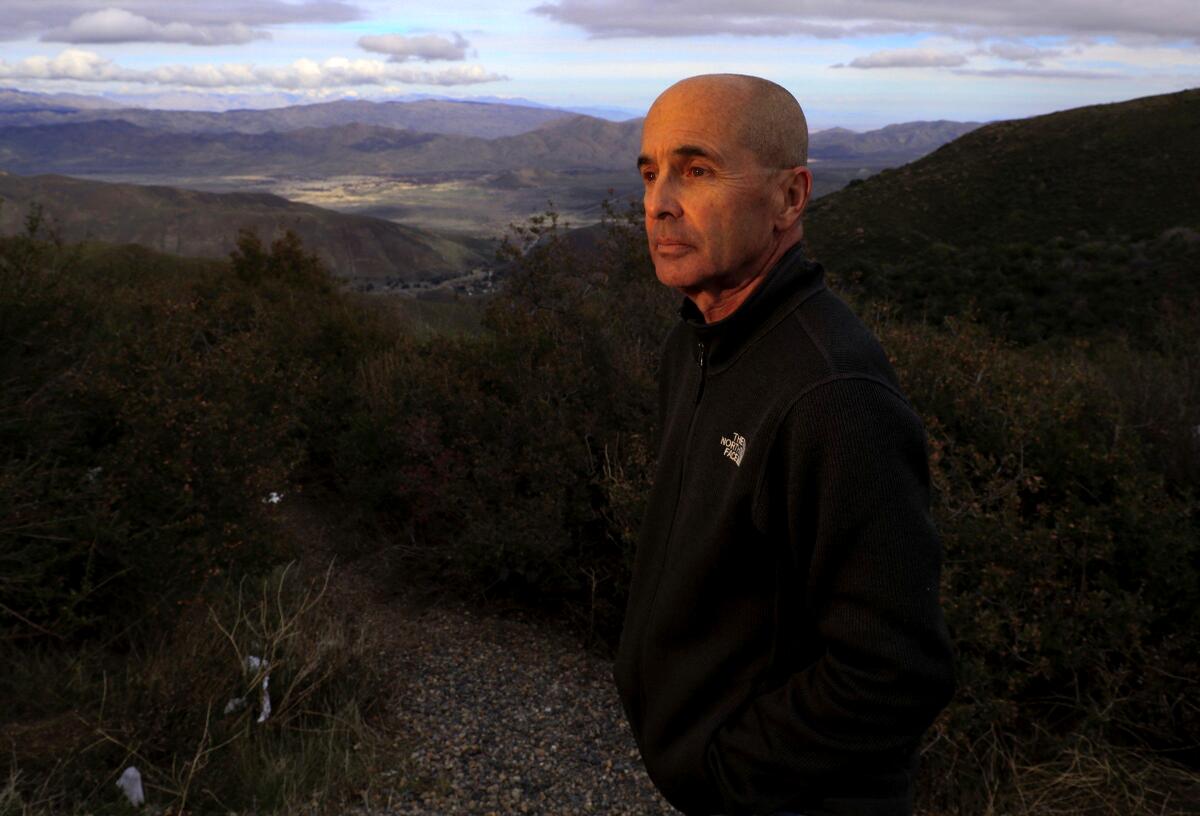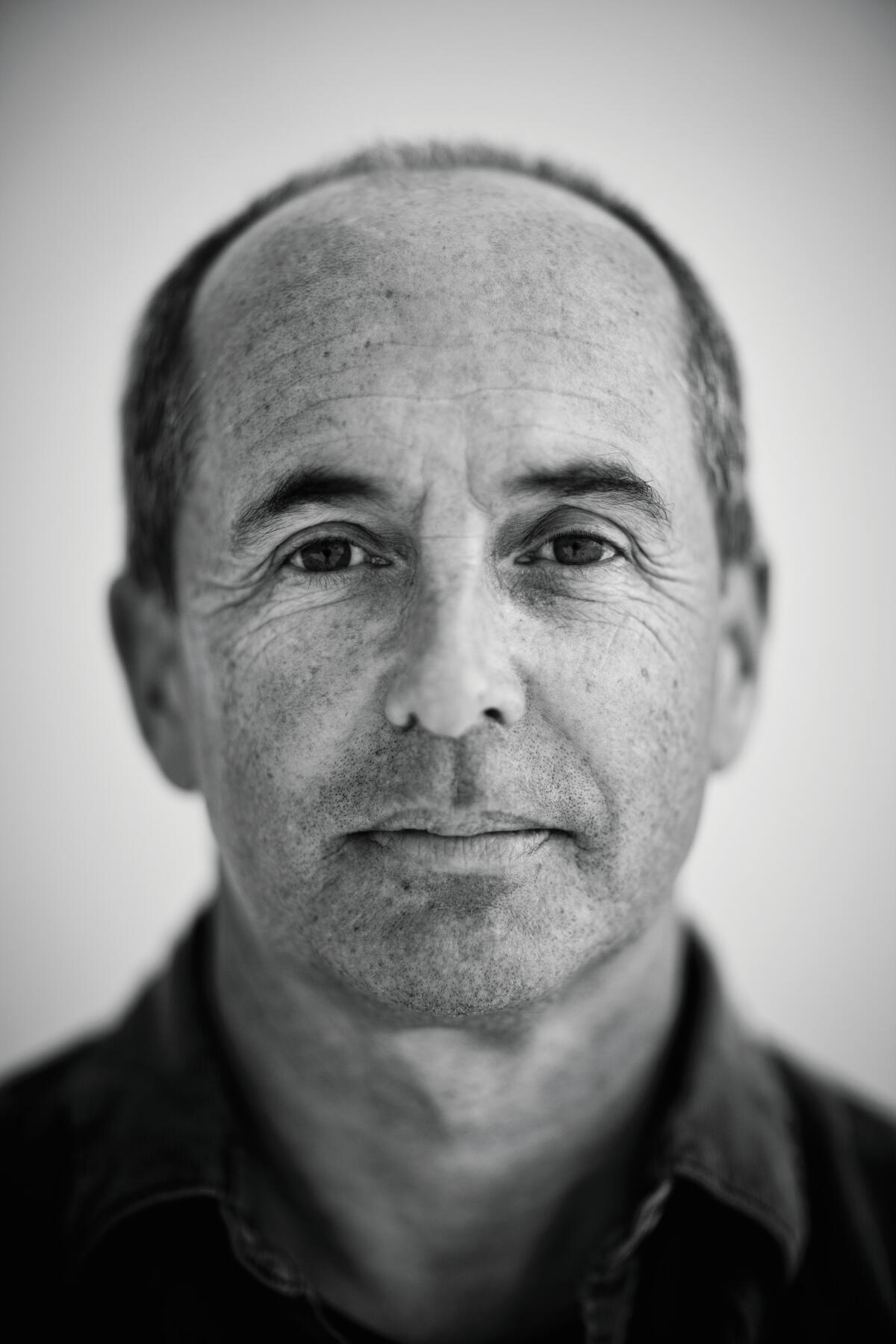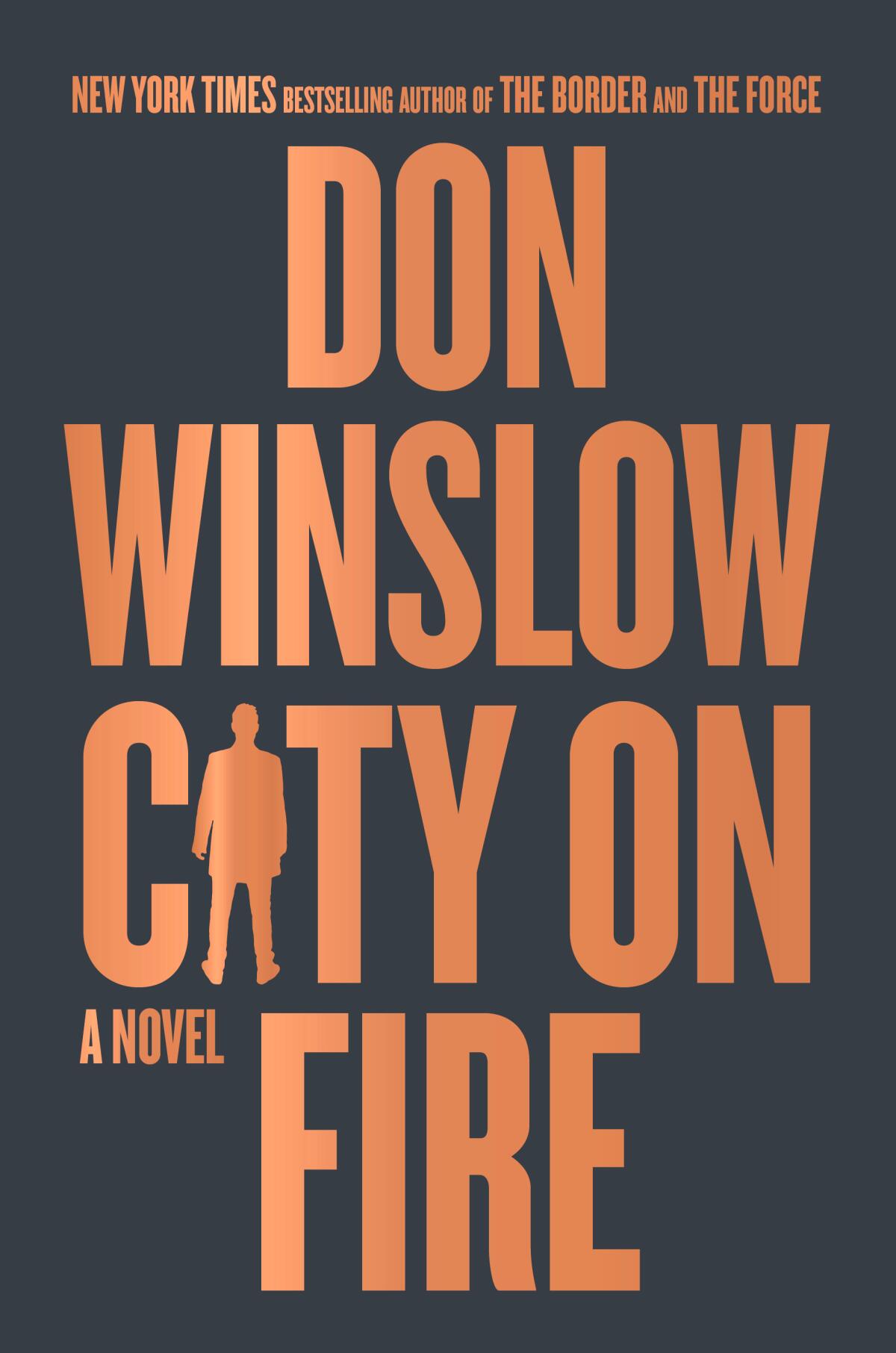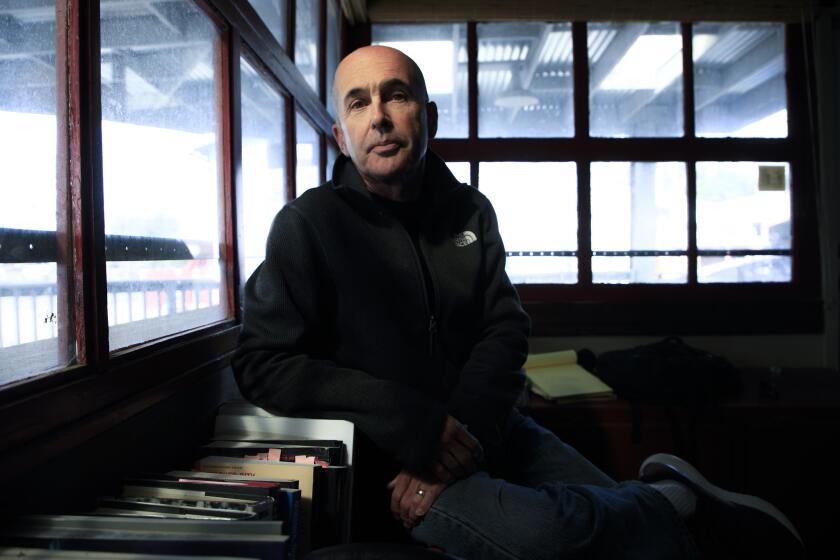Review: How Don Winslow found inspiration in Rhode Island mobsters for a new crime juggernaut

On the Shelf
'City on Fire'
By Don Winslow
William Morrow: 384 pages, $29
If you buy books linked on our site, The Times may earn a commission from Bookshop.org, whose fees support independent bookstores.
Among the 20-plus novels in Don Winslow’s body of work, the “Cartel” trilogy stands apart. In that series, Winslow elevated the story of America’s disastrous 50-year war on drugs, and two men on opposite sides of the battle, to Shakespearean proportions. Winslow earned a Los Angeles Times Book Prize for the second installment and a deal with FX to turn the novels into a TV series.
Now comes “City on Fire,” the first installment of a new trilogy the author has been working on for years. Winslow found inspiration in the mobsters of the Rhode Island towns where he grew up and, intriguingly, from Homer’s “Iliad.”
Winslow says he didn’t read Greek and Roman classics until adulthood, when he discovered parallels to the real-life mob stories of his youth. “I saw every theme that we treat in modern crime fiction,” he says in a letter to readers, “power, murder, vengeance, corruption, justice and redemption.”
“City on Fire” explores these enduring themes in the story of two Providence mobs in the mid-1980s. The Irish, led by John Murphy, control the docks in the city’s southern Dogtown, while Italian mobsters, led by Pasco Ferri, control trucking and protection rackets from the westernmost reaches of Federal Hill.

The aging Murphy and Ferri have worked for years to achieve a delicate balance of power between the rivals, an understanding reinforced at an annual summer gathering of mobsters and their families at Goshen Beach.
But Danny Ryan, Murphy’s son-in-law, senses a restless discontent at the latest gathering as he spies a woman “come out of the water like a vision emerging from his dreams of the sea. Except she’s real and she’s going to be trouble.” The overtly sexualized femme fatale is a trope used by countless, often male, crime writers — Arthur Conan Doyle, Dashiell Hammett and Raymond Chandler among them — to signal trouble on the horizon for the hero. But her roots are much deeper, as in the “Iliad,” where the elopement or abduction of the beautiful Helen sparks the Trojan War.
With a “voice like sex, low and a little gravelly,” Pam Davies of tony Greenwich, Conn., is an eye-catching stand-in for Helen of Troy. She’s also the girlfriend of Paulie Moretti, one of the heavy hitters in the Italian mob. That doesn’t stop Liam Murphy, Danny’s brother-in-law, from making a crude pass. Liam is the favorite son of boss Murphy, Kennedy-handsome and so smooth the family jokes that he “didn’t kiss the Blarney Stone — it kissed him.”
Liam’s sorry-not-sorry transgression crosses a line that Paulie Moretti and his crew feel obliged to avenge in the most violent manner. When Liam not only survives the beat down they give him but also ends up marrying Pam, all hell breaks loose and the prosperity of both mobs is threatened. The old guard can’t stem the escalating violence that engulfs the Morettis and Murphys, assorted minions and, most significantly, Danny Ryan.
Once a fisherman, now a dockworker with a side hustle as a collector for his father-in-law’s loan-sharking operation, Danny is a family man who, like the “Iliad’s” Aeneas, cares for his people, whether they’re dysfunctional family or fellow mobsters. His journey from bit player to reluctant mob leader is the light that guides “City on Fire,” even as stepping up conflicts with his persistent urge to abandon the family business entirely.

Danny dreams about escaping to California, although he can barely articulate why. Whether it’s because of a second cousin in San Diego — longtime Winslow readers may wonder if it’s the eponymous character in “The Winter of Frankie Machine” — or the connection to an Irish ballad he’s heard since childhood, Danny’s thoughts often return to the Golden State. It becomes the symbol of a fresh start and redemption that seems impossible to achieve.
As he did in the “Cartel” trilogy, Winslow adeptly manages the comings and goings of a large cast of characters. Notable is his treatment of women in the novel, which gives them more depth than is usually the case in mobster-driven genre fiction while honoring their mythological roots.
The stories of Pam and the other women revolve around a central core of internecine battles between the older mobsters and their male progeny, all eager for a changing of the guard and conveyance of authority and power to the next generation. There are ancillary mobs too, most notably a Black crew led by Marvin Jones, who runs prostitution and gambling in South Providence. Danny approaches Jones for an assist in the Murphys’ war with the Morettis, but a lasting alliance seems doomed from the start.
“City on Fire” may be a rough read for those who are offended by violent characters who hurl racist and homophobic slurs and F-bombs. Their variety and frequency in the novel reinforce that these are not kings and princes at war, but gangsters whose motto “One hand dirties the other” guides their epic battles, murderous plots and corruption.
A car stops on a hilltop. A man gets out. He walks a few paces and stands at the ridge.
While the connections to the “Iliad” and, to a lesser degree, the “Aeneid” are fun to parse, Winslow does not overplay them in “City on Fire,” nor is it necessary to know those texts to enjoy the book. Other than character inspiration, the occasional allusion and quotes from the epic poems that open each of the novel’s three parts, Winslow leaves the reader to feel the inexorable pull of fate in the attacks and counterattacks of the Murphys and Morettis, as inevitable as the battle between the Trojans and Spartans that culminated in the Trojan War.
“City on Fire” also nods to Mario Puzo’s 1969 “The Godfather,” especially in its depiction of mob warfare that ensnares a younger generation perhaps not well suited to the family business. Also like Puzo’s novel, “City on Fire” and the two volumes to come have been picked up for film adaptation in a seven-figure deal, a testament to the enduring appeal and bankability of gangster stories.
A guide to the literary geography of Los Angeles: A comprehensive bookstore map, writers’ meetups, place histories, an author survey, essays and more.
By the end of this well crafted, troubling epic, enough people are left standing to offer hope of a future for these deeply flawed families. That, plus a hint that Danny Ryan is heading to a “warmer shore,” should lure readers to the next installment of what’s shaping up as Winslow’s next juggernaut of a modern-day epic.
Don Winslow will be in conversation with Michael Mann at 12:30 p.m. April 24 at the Festival of Books.
Woods is a book critic, editor and author of several anthologies and novels, most notably the “Detective Charlotte Justice” mystery series.
More to Read
Sign up for our Book Club newsletter
Get the latest news, events and more from the Los Angeles Times Book Club, and help us get L.A. reading and talking.
You may occasionally receive promotional content from the Los Angeles Times.








